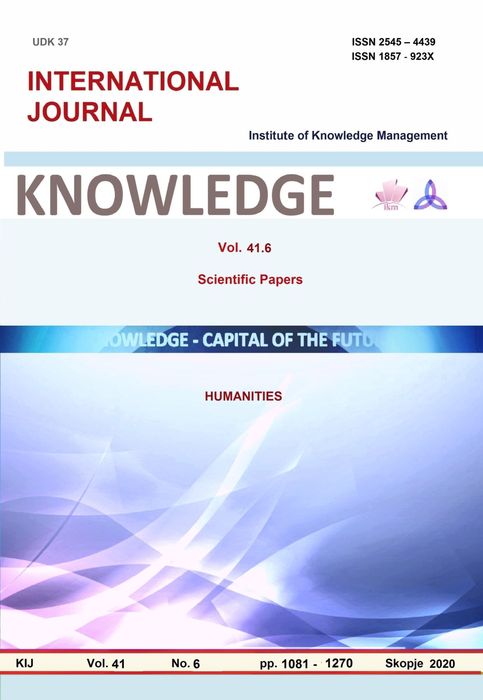INFLUENCE OF MORAL ANXIOUSNESS ON THE FORMS OF AGGRESSION IN THE PERIOD OF PUBERTY
INFLUENCE OF MORAL ANXIOUSNESS ON THE FORMS OF AGGRESSION IN THE PERIOD OF PUBERTY
Author(s): Rusanka ManchevaSubject(s): Social psychology and group interaction, Developmental Psychology
Published by: Scientific Institute of Management and Knowledge
Keywords: morality; moral anxiety; aggression; forms of aggression; puberty
Summary/Abstract: The perception of moral standards of behavior is an element of the age development of the individual. The period of puberty includes their understanding and use. Achieving age is the autonomy of morality, which is experienced as a necessary condition for the social growth of the individual. Emotionally reactive and sensitive, she experiences interpersonal conflict over compliance with moral norms of behavior, their own interpretation of their content and the assessment of others. Leads to emotional tension justified as moral anxiety. The behavioral activity of the young person often involves the use of aggression to overcome it. A study conducted with adolescents aged 11 to 14 years showed that there is a statistically significant relationship between moral anxiety and forms of aggression. With the highest severity, by gender, it is in indirect aggression. All other forms: Physical aggression, aggressive irritability, aggressive mistrust, jealousy, hatred, and guilt after aggression are relevant for both girls and boys. They are not affected by age. The correlations between high moral anxiety and forms of aggression were positive with the highest values in physical (r = 0.919, p <0.005), indirect aggression (r = 0.90, p <0.005) and oppositional behavior (r = 0.725, p < 0.005). Moral anxiety increases when adolescents use physical force openly, openly oppose, or cause harm indirectly. For the entire study period, moral anxiety was weakly associated with the indirect, hidden manifestation of aggression (r = 0.090). When used, it is almost inactive. There is a negative (r = -0.284) correlation between indirect aggression and guilt after aggression. Adolescents prefer not to use overt aggression, maintaining their negative experiences with an aggressive focus
Journal: Knowledge - International Journal
- Issue Year: 41/2020
- Issue No: 6
- Page Range: 1215-1220
- Page Count: 6
- Language: Bulgarian

